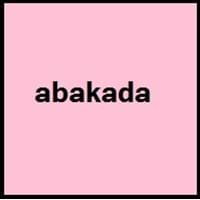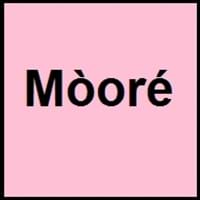Tagalog and Mossi
Countries
Philippines
Burkina Faso
National Language
Philippines
Benin, Burkina Faso, Ghana, Ivory coast, Mali, Togo
Second Language
Filipinos
Not spoken in any of the countries
Speaking Continents
Asia, Australia
Asia
Minority Language
Australia, Canada, Guam, Hong Kong, New Zealand, Singapore, United Kingdom
Not spoken in any of the countries
Regulated By
Komisyon sa Wikang Filipino, National Languages Committee
Not Available
Interesting Facts
- In 1593, "Doctrina Christiana" was first book written in two versions of Tagalog.
- The name "Tagalog" means "native to" and "river". "Tagalog"is derived from taga ilog, which means "inhabitants of the river".
- Mossi languages use pitch to distinguish meanings.
- Mossi is the 2nd largest ethnic group in Ivory Coast.
Similar To
Filipino, Cebuano and Spanish Languages
Dagbani Language
Derived From
Not Available
Not Available
Alphabets in
Tagalog-Alphabets.jpg#200
Mossi-Alphabets.jpg#200
Writing Direction
Left-To-Right, Horizontal
Not Available
Thank You
Salamat po
Laafi bala
How Are You?
Kamusta ka na?
Laafi beme ?
Good Night
Magandang gabi
Ne y yungo
Good Evening
Magandang gabi po
ne y zabre
Good Afternoon
Magandang hapon po
Kia ora
Good Morning
Magandang umaga po
Ne y yibeogo
Sorry
pinagsisisihan
gafare
Bye
Paálam
Wend na kon-d nindaare
I Love You
Iniibig kita
Kei te aroha au ki a koe
Excuse Me
Ipagpaumanhin ninyo ako
Y gafare
Dialect 1
Batangas Tagalog
Ouapadoupou
Where They Speak
Batangas, Gabon
Burkina Faso
Dialect 2
Bisalog
Saremde
Where They Speak
Philippines
Burkina Faso
Dialect 3
Filipino
Taolende
Where They Speak
Philippines
Burkina Faso
How Many People Speak
Not Available
Second Language Speakers
Not Available
Native Name
Tagalog
Mosse
Alternative Names
Filipino, Pilipino
Not Available
German Name
Tagalog
Mossi-Sprache
Pronunciation
[tɐˈɡaːloɡ]
Not Available
Ethnicity
Tagalog people
Mossi
Origin
1593
Not available
Language Family
Austronesian Family
Niger-Congo Family
Subgroup
Indonesian
Western Sudanic
Branch
Not Available
Gur (Voltaic)
Early Forms
Proto-Philippine, Old Tagalog, Classical Tagalog, Tagalog
No early forms
Standard Forms
Filipino
Mossi
Language Position
Not Available
Signed Forms
Not Available
Not Available
Scope
Individual
Individual
ISO 639 1
t1
No data Available
ISO 639 6
Not Available
Not Available
Glottocode
taga1269
moss1236
Linguasphere
31-CKA
No data Available
Language Type
Living
Living
Language Linguistic Typology
Object-Verb-Subject, Subject-Verb-Object, Verb-Object-Subject, Verb-Subject-Object
Not Available
Language Morphological Typology
Not Available
Not Available
All Tagalog and Mossi Dialects
Most languages have dialects where each dialect differ from other dialect with respect to grammar and vocabulary. Here you will get to know all Tagalog and Mossi dialects. Various dialects of Tagalog and Mossi language differ in their pronunciations and words. Dialects of Tagalog are spoken in different Tagalog Speaking Countries whereas Mossi Dialects are spoken in different Mossi speaking countries. Also the number of people speaking Tagalog vs Mossi Dialects varies from few thousands to many millions. Some of the Tagalog dialects include: Batangas Tagalog, Bisalog. Mossi dialects include: Ouapadoupou , Saremde. Also learn about dialects in South American Languages and North American Languages.
Tagalog and Mossi Speaking population
Tagalog and Mossi speaking population is one of the factors based on which Tagalog and Mossi languages can be compared. The total count of Tagalog and Mossi Speaking population in percentage is also given. The percentage of people speaking Tagalog language is 0.42 % whereas the percentage of people speaking Mossi language is 0.11 %. When we compare the speaking population of any two languages we get to know which of two languages is more popular. Find more details about how many people speak Tagalog and Mossi on Tagalog vs Mossi where you will get native speakers, speaking population in percentage and native names.
Tagalog and Mossi Language Codes
Tagalog and Mossi language codes are used in those applications where using language names are tedious. Tagalog and Mossi Language Codes include all the international language codes, glottocodes and linguasphere.





